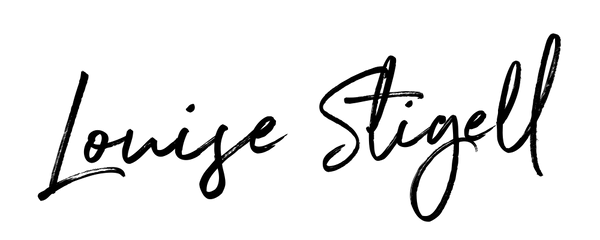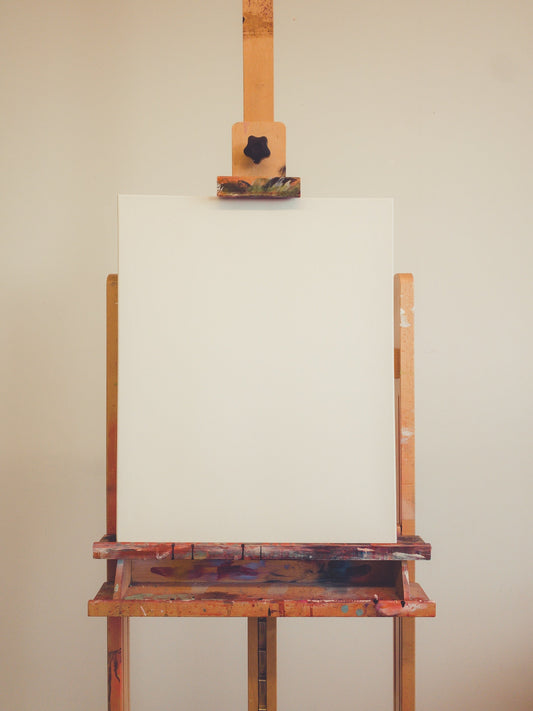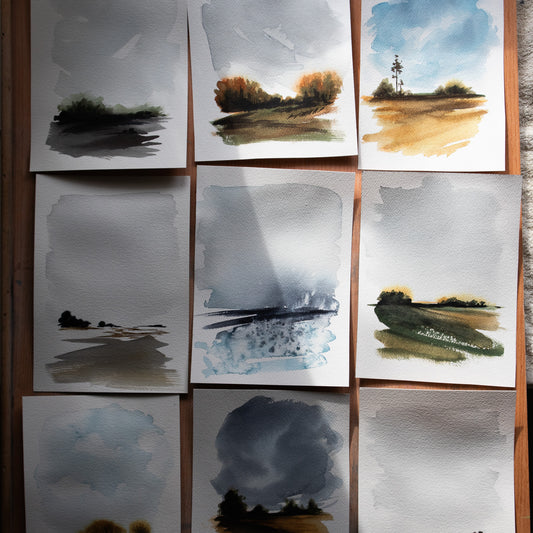Why are self-employed creatives so unhappy?
"Now is the best time in history to be a creative."
"The internet has democratized entrepreneurship. Anyone can make a living on their creativity."
"The future belongs to the creative."
"Follow your passion!"
When was the last time you heard or read something similar lately? Maybe in a book, a webinar, a podcast, or the sales page for a course.
Statements like these feel true when we see them. Not just because we badly want them to be true. They make sense logically. The internet has democratized entrepreneurship. Anyone could, hypothetically, start a successful podcast or YouTube channel, or blog, or online store. The world consumes more art, entertainment, and "content" than ever before. We are surrounded online by creatives who are making a living doing what they love, and seem to be thriving. And everywhere are influencers, coaches, and companies encouraging us to "take the leap!"
And yet... How many of us can honestly say that this reflects our current reality as creatives? That we are thriving in this future that supposedly belongs to us. Something doesn't quite add up.
A few weeks ago while driving to buy groceries, I was pondering this and thought to myself: "Why can't someone do a really big study of creatives and find out how we're all really doing, when we're not keeping a brave face and performing our most successful selves on social media?"
I wanted to know the truth. Not the "humble bragging" of the influencers, the feverish idealism of the business gurus, the cherry picked case studies and testimonials on sales pages for overpriced courses. I wondered how the average creative/creator was actually doing. And whether it's only me who's feeling disillusioned. Who's been working harder than ever, towards a goalpost that's moving further and further away.
Then I heard about something called the New Creator Manifesto, on Tara McMullin’s podcast What Works. It's a recent study - the largest one yet - of the creator economy, with over 1600 creators interviewed.
Naturally, I dropped everything I was holding to go read it.
You see, most of the studies of the creator economy accessible online have been done by companies like Linktree, Later, Kajabi, and ConvertKit. Companies that make their money directly off of us creators. And even though their data is likely not incorrect, it's also likely skewed by a number of factors: their selected pool of creators to include, the nature of the questions asked, and the interpretation of the replies.
This new study is supposedly independent and unbiased, and its results paint a different picture compared to the previous ones I've read.
From the study's introduction:
"The promise of soaring success where we could rewrite the rules of work and follow our passions to guaranteed profits captured people’s imaginations. There was only one problem. To make money sharing your talents in this new world, you had to hit the social media lottery – building an audience in the millions to make enough money from sponsorships or the slim revenue share offered by YouTube, Twitch or occasionally, Instagram and Facebook."
I can't be the only one who feels like I've been slowly, covertly, involuntarily entered into this social media lottery without even realizing it. How many of us started out as writers, artists, musicians, craftspeople, freelance illustrators... only to suddenly find ourselves transformed into influencers and content marketers? All competing for attention on algorithmically controlled platforms.
There's no clear definition of the term "independent creator" that's so frequently referenced in the study, but from my research it roughly means anyone who:
- Works for themselves, not for a company.
- Who's primary job consists of attracting an audience with the help of their content online.
- And then either selling the attention of that audience to advertisers (via platforms like YouTube), and/or selling things directly to their audience, (merch, courses, books, affiliate products, et.c.)
It's not only the social media influencers, or the YouTubers, or the Twitch streamers that are independent creators. It's also us creative solopreneurs who are trying to build an audience for our work online. Not all creatives are creators per this definition, of course. But most of them are today, thanks to the "internet democratizing entrepreneurship."
The study goes on to describe the "creator economy gold rush" that occurred around the pandemic 2020, when there was a huge influx - not only of bored and lonely people stuck in their homes and consuming more art and entertainment than usual - but also of aspiring creatives and creative entrepreneurs. In response to this boom, the tech platforms introduced more tools for creators to monetize their content.
But as the study points out, even though we now have more tools and income streams than ever before, not all is what it seems:
"Even as Big Social and new upstarts continue to fall over themselves to cater to creators, the rosy picture of people following their passions to newfound profit and prestige has begun to look more and more like a mirage.
When you look under the hood at a creator’s business, the foundation is shaky AF. Headlines abound about creator burnout and the need for mental health programs to help those trying to stay upright on a content treadmill designed to please the algorithm Gods. The New Yorker recently described the current state of the Creator Economy as “the gig economy, but for digital content.” (Not a compliment.) For those aspiring creators who have yet to make it big, the cost-benefit analysis of entering the game is coming up short as they realize it may never be possible to make ends meet. Despite audiences of hundreds of thousands and revenue-generating creator tools galore, the math, confoundingly, doesn’t seem to add up. The game, while fun, is rigged."
The game is rigged, because it’s being monopolized by a handful of Silicon Valley companies who’s only objective is profit. This chilling realization first hit me a few years ago when I read William Deresiewicz's book The Death of the Artist: How Creators Are Struggling to Survive in the Age of Billionaires and Big Tech. Followed by Chokepoint Capitalism, by Cory Doctorow and Rebecca Giblin.
Over the span of just a few weeks, I went from being a fundamentally optimistic person - who saw it as my mission in life to not only make a decent living as an independent creative, but also help others do the same - to sinking into depression and despair. (I still haven't fully recovered. 🙄)
There are, no doubt, winners in this game/lottery. And what they have is technically possible for anyone of us. I've seen relatively good results from my hard work on YouTube, for example. (In terms of channel growth, not financially…)
The questions is: what is required of us in order to reach the level of success we're after? And do we even want what's on the other side of it?
The most depressing findings from the study:
"93% say that being a creator has introduced stresses that have 'negatively impacted their lives,' with 45% saying they’ve experienced 'big emotional lows.'
Only 35% of all creators feel they’re earning a reasonable income and putting in an acceptable amount of time and effort. This means 65% of creators feel overworked and/or underpaid.
The majority of creators surveyed say they don’t have much more time or energy to invest in making creating financially viable. They said they are less than an hour a day away from feeling like it would 'not be worth it' to continue on their path as a creator.
Nearly 25% of all creators admit they have real doubts they’ll ever be able to reach their financial goals without burning out.
77% of creators worry about being dependent on social media platforms for their earnings.
70% say that a dip in earnings from an algorithm change could have 'serious effects' on their life."
Doing what we love for a living might sound like a dream. Doing it within this enshittified online dystopia is more akin to a nightmare sometimes. I can't tell you how often I've fantasized about my olden days of working part-time in a reception area. Showing up every day, doing what was required of me, and then going home to play video games without a care in the world. And collecting the same paycheck every month. No creative performance anxiety, no worries about reach, views, and subscribers. No Silicon Valley overlords dictating my income. *sigh* If only I'd have appreciated it more back then…
Running a creative business has never been easy, of course. There will always be risks, sacrifices, stressors, and uncertainty involved when you’re your own boss . But there's something uniquely nefarious going on right now for creatives. Our choices (for venues, platforms, outlets, opportunities, et.c.) have been gradually stripped away, and now we're all forced to compete on the same handful of huge arenas. And the game, as we've discovered, is rigged against us.
I've spoken before about the precariousness of relying too much on social media and content platforms in your career. Something this study echoes as well. One big source of angst among creators is the fact that the audience they're building on these platforms is not really their own. What's being given can just as easily be taken away, and often is. Creators sometimes have their accounts closed down without a warning, due to some vague notion of "content violations". And with that account goes all of their content, their hard-earned relationships and interactions, their livelihood.
Building a business on rented land is not a good idea, but how many other options are there?
Many of the surveyed creators in this study also say they feel like they've hit a glass ceiling, and that the goalposts keep moving all the time.
That's certainly been my experience as well. I spent years creating art courses on Skillshare, and thanks to a few lucky breaks, was earning a (for me) decent amount of money considering the time and effort I had put in. That is, until September 2022, when Skillshare completely upended their payment model and the majority of teachers on the platform had their incomes slashed by 60-70% from one month to another.
Similar changes are made on other platforms regularly. It seems to be the modus operandi at large: lure a bunch of creatives in and have them fill the platform with great content, and then gradually pay them less and less of the value they've generated.
And the squeeze is happening from two directions at once. Not only are we getting paid less and less for the same work, but the tools that we rely on for our work also keep getting more and more expensive. Email marketing software companies, for example, love sneaking up the prices of their subscriptions, and removing functionality from their free plans. Website hosts and video editing software and other creative tools follow a similar pattern. Every year, it seems, being a creative entrepreneur costs a little bit more and pays a little bit less. And we creators are struggling to keep up.
One of the most striking features of this study is the comparison between various social media platforms, in terms of the audience sizes required to make the same amount of money:
To earn a $1000 monthly salary, you'd need:
25 000 000 views on TikTok
2 000 000 views on YouTube
100 000 followers on Instagram
These figures are all based on averages and estimations of course, but I love how well they illustrate the unreasonable demands these platforms put on creators. Demands that will likely only keep increasing.
So, what does the future look like for us hoping to make a living on our art?
Luckily, this study doesn't only deliver depressing stats. It offers some hope as well:
"As more creators are getting wise to an increasingly exhausting and uncertain future, something fascinating is happening. A new independent creator is emerging. They represent a small but rapidly growing segment of the Creator Economy. And they are finding success operating by three very different principles:
Principle #1: They own a direct relationship with their audience, rather than renting it from social media platforms.
Principle #2: They earn money from cultivating communities, not just building audiences.
Principle #3: They seek to build a network effect, rather than stay on the content conveyor belt demanded by big social platforms to succeed."
The first principle here is a no-brainer. And even though there is still allure for some in the chance of going viral, many creatives are waking up to the fact that a viral post or video isn't anything to stake their whole career on. More likely, it will just bring in a lot of new people who aren't your ideal audience and who won't buy your art, come to your shows, or even subscribe to your newsletter.
Email has been the most secure channel of communication with an audience or fan base for many years, and will likely continue to be. If not in the form of an email list, then at least in the form of a Substack, Patreon, BuyMeACoffee, or any of the other crowdfunding platforms out there that give the creator access to their audience's email addresses.
The second principle - cultivating a community - gives me mixed feelings. It's true, for sure, that a community provides more value than simply churning out content. I'm here at Substack partly for this reason. I love the interactions in my comment fields, the discussion threads, and being able to provide a space for like minded creatives.
But far from all creatives want to be community managers. What most of us want is to make our art, and share it. I'm still negotiating the level of "community building" that I'm comfortable with. And I do realize that providing a community space doesn't necessarily have to be ultra-time consuming. It can even be a meaningful and nourishing part of one's creative practice.
As the study states:
"In an era characterized by an epidemic of loneliness, independent creators see their role evolving from content producers to human connectors in a number of profound ways."
Creating within a community gives a lot more back. Not just to the creator, but to everyone in the community. There are more ways to be of value, apart from just sharing content. A community can become a source of, not only inspiration, but of friendship, support, and collaboration. And that value is amplified for every new person who joins.
What if... instead of trying to please 100 000 distracted Instagram followers, we could provide greater value to a smaller number of people? What if we could focus on serving just a few hundred Patreon- or Substack supporters, each paying $7/month? Or even just 30-50 members of a paid community, each paying $50/month. These numbers feel a lot more doable, and the work involved a lot more sustainable, compared to amassing audiences of hundreds of thousands.
And as the study also points out, independent creators benefit a lot from niching down, instead of appealing to everyone. (Or *shudder* appealing to the algorithm.) Niching down doesn't have to mean sticking to only one topic, though. (My multi-passionate heart skipped a beat when I first read that...) It simply means embracing who you are ideally for, and doubling down on that. Being un-apologetically yourself. Leaning further into your obsessions. Sharing more of what's important to you. Like I say in my Calm Marketing workshop: "Being fully yourself in your marketing will draw your people - your ideal clients - towards you like a magnet."
This approach will take some getting used to, at least for me. We've all been indoctrinated into thinking more is better for many years now. And the platforms we use in our businesses are designed from that point of view as well. It's not easy to put out a YouTube video that feels authentic to you... only to have it crushed by the algorithm and judged in YouTube analytics as "below typical" and ranking 10/10 by views on your latest videos. That's the sort of feedback that can quickly make you forget how fun that video was to make, and that the few people who do find it and enjoy it, are the people who truly matter.
Another benefit of building a community, as the study points out in Principle #3, is the network effect. A community gets better the more people who are in it. People in groups tend to want to invite like minded friends into those groups. A community (if it's good) comes with its own built-in marketing. There's also a greater likelihood that you'll stay in a community where several of your friends are. (That’s why Facebook and Instagram still has such a hold on people.) So cultivating a community around your art, values, point of view, or passions means building something that's self-sustaining, self-perpetuating, and not as dependent on your constant hustling. Or the whims of an algorithm.
Maybe the future is bright for creatives, after all. It remains to be seen. At least reading this study has boosted my morale a bit. I can see an alternative path towards my goals. One that doesn't threaten to burn me out.
What do you think? Have you read the study? Does it reflect your experience?




1 kommentar
Fabulous article sharing what many of us independent artists and creatives are feeling – AND the data behind it. Sharing to my tribe!